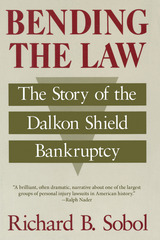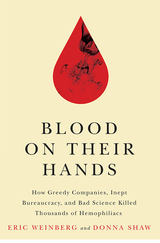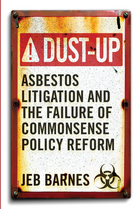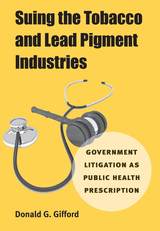

Agent Orange on Trial is a riveting legal drama with all the suspense of a courtroom thriller. One of the Vietnam War’s farthest reaching legacies was the Agent Orange case. In this unprecedented personal injury class action, veterans charge that a valuable herbicide, indiscriminately sprayed on the luxuriant Vietnam jungle a generation ago, has now caused cancers, birth defects, and other devastating health problems. Peter Schuck brilliantly recounts the gigantic confrontation between two million ex-soldiers, the chemical industry, and the federal government. From the first stirrings of the lawyers in 1978 to the court plan in 1985 for distributing a record $200 million settlement, the case, which is now on appeal, has extended the frontiers of our legal system in all directions.
In a book that is as much about innovative ways to look at the law as it is about the social problems arising from modern science, Schuck restages a sprawling, complex drama. The players include dedicated but quarrelsome veterans, a crusading litigator, class action organizers, flamboyant trial lawyers, astute court negotiators, and two federal judges with strikingly different judicial styles. High idealism, self-promotion, Byzantine legal strategies, and judicial creativity combine in a fascinating portrait of a human struggle for justice through law.
The Agent Orange case is the most perplexing and revealing example until now of a new legal genre: the mass toxic tort. Such cases, because of their scale, cost, geographical and temporal dispersion, and causal uncertainty, present extraordinarily difficult challenges to our legal system. They demand new approaches to procedure, evidence, and the definition of substantive legal rights and obligations, as well as new roles for judges, juries, and regulatory agencies. Schuck argues that our legal system must be redesigned if it is to deal effectively with the increasing number of chemical disasters such as the Bhopal accident, ionizing radiation, asbestos, DES, and seepage of toxic wastes. He imaginatively reveals the clash between our desire for simple justice and the technical demands of a complex legal system.

"Mr. Sobol has produced a readable yet fully researched and detailed study of the operation of the bankruptcy and its effects upon all concerned—the women who were injured, the swarms of lawyers who represented parties in the bankruptcy, and the court which oversaw the bankruptcy in Richmond. . . . This book adds greatly to the current debate about how strong a managerial federal judge our system should have."—Paul D. Rheingold, New York Law Journal
"Bending the Law is polemical and relentless. It is also minutely researched, fluidly written, and persuasive."—Paul Reidinger, ABA Journal
"Bending the Law is a must read for bankruptcy practitioners, and for anyone else concerned about the use of bankruptcy law to deal with mass torts. Although its author is a civil rights lawyer, he details the subtle art of practicing bankruptcy law with a discerning eye, and is a gifted storyteller as well."—Joryn Jenkins, Federal Bar News and Journal
"This is an accessible history of the case by a veteran civil-rights lawyer."—Washington Post Book World

Blood on Their Hands is an inspiring, firsthand account of the legal battles fought on behalf of hemophiliacs who were unwittingly infected with tainted blood. As part of the team behind the key class action litigation filed by the infected, young New Jersey lawyer Eric Weinberg was faced with a daunting task: to prove the negligence of a powerful, well-connected global industry worth billions. Weinberg and journalist Donna Shaw tell the dramatic story of how idealistic attorneys and their heroic, mortally-ill clients fought to achieve justice and prevent further infections. A stunning exposé of one of the American medical system’s most shameful debacles, Blood on Their Hands is a rousing reminder that, through perseverance, the victims of corporate greed can sometimes achieve great victory.

In an era of polarization, narrow party majorities, and increasing use of supermajority requirements in the Senate, policy entrepreneurs must find ways to reach across the aisle and build bipartisan coalitions in Congress. One such coalition-building strategy is the “politics of efficiency,” or reform that is aimed at eliminating waste from existing policies and programs. After all, reducing inefficiency promises to reduce costs without cutting benefits, which should appeal to members of both political parties, especially given tight budgetary constraints in Washington.
Dust-Up explores the most recent congressional efforts to reform asbestos litigation—a case in which the politics of efficiency played a central role and seemed likely to prevail. Yet, these efforts failed to produce a winning coalition, even though reform could have saved billions of dollars and provided quicker compensation to victims of asbestos-related diseases. Why? The answers, as Jeb Barnes deftly illustrates, defy conventional wisdom and force us to rethink the political effects of litigation and the dynamics of institutional change in our fragmented policymaking system.
Set squarely at the intersection of law, politics, and public policy, Dust-Up provides the first in-depth analysis of the political obstacles to Congress in replacing a form of litigation that nearly everyone—Supreme Court justices, members of Congress, presidents, and experts—agrees is woefully inefficient and unfair to both victims and businesses. This concise and accessible case study includes a glossary of terms and study questions, making it a perfect fit for courses in law and public policy, congressional politics, and public health.

The current products liability crisis is both familiar and puzzling: million-dollar awards for apparently frivolous claims, inadequate settlements for thousands of people with severe injuries, skyrocketing insurance premiums, an overburdened judicial system. The adverse effects of this crisis on product innovation may be particularly detrimental to the extent that they deprive consumers of newer and safer goods. W. Kip Viscusi offers the first comprehensive and objective analysis of the crisis. He employs extensive, original empirical data to diagnose the causes and to assess the merits of alternative reform policies.
Drawing on both liability insurance trends and litigation patterns, Viscusi shows that the products liability crisis is not simply a phenomenon of the 1980s but has been developing for several decades. He argues that the principal causes have been the expansion of the doctrine of design defect, the emergence of mass toxic torts, and the increase in lawsuits involving hazard warnings. This explanation differs sharply from that of most other scholars, who blame the doctrine of strict liability. Viscusi reformulates the concept of design defect, grounding it in sound economic analysis. He also evaluates public policy regarding hazard warnings and proposes a new national approach.
More generally, the author sketches a comprehensive social risk policy, in which tort liability interacts with government health and safety regulation to foster a coherent set of institutional responses to health and safety risks. Reforming Products Liability will be of special interest to lawyers, judges, policymakers, economists, and all those interested in legal policy and health and safety issues.

---David Owen, Carolina Distinguished Professor of Law, and Director of Tort Law Studies, University of South Carolina
READERS
Browse our collection.
PUBLISHERS
See BiblioVault's publisher services.
STUDENT SERVICES
Files for college accessibility offices.
UChicago Accessibility Resources
home | accessibility | search | about | contact us
BiblioVault ® 2001 - 2024
The University of Chicago Press









